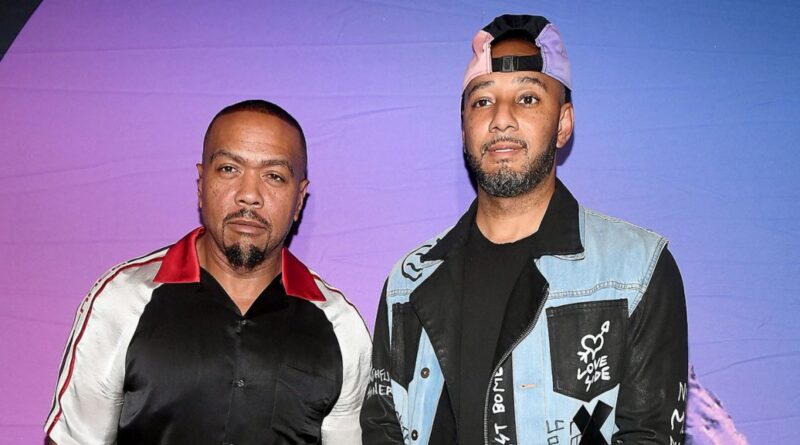Timbaland & Swizz Beatz Settle ‘Verzuz’ Lawsuit With Triller
Timbaland and Swizz Beatz have settled their $28 million lawsuit against Triller for allegedly failing to pay money owed from the sale of their popular Verzuz livestream series.
“VERZUZ has always been a platform that is by the artists, for the artists and with the people,” said Swizz Beatz and Timbaland in a statement. “We’re glad to come to an amicable agreement with Triller and continue giving fans the music and community that they’ve come to know and love from the brand.”
Triller, a TikTok-like app that allows users to create and share short videos, announced in March 2021 that it would pay an undisclosed sum in cash and equity to acquire Verzuz, the pandemic-era hit in which two artists square off in a livestreamed music battle. Under the terms of the original deal, the Grammy-winning producers and entrepreneurs joined the Triller Verzuz management team to help oversee music and other company strategies. The deal also made Timbaland and Swizz Beatz large shareholders in Triller and allocated part of their ownership stake to the 46 artists who had appeared on Verzuz prior to the acquisition. Now, under the terms of the settlement, those artists will now receive an increased ownership stake in the company.
Performers who became shareholders and partners under the original deal included John Legend, DMX, Alicia Keys, Ashanti, 2 Chainz, Rick Ross, Too $hort, Patti LaBelle, Gucci Mane, Jeezy, E-40, Bounty Killer, D’Angelo, Ludacris, RZA, The Dream, Babyface, Nelly, Jagged Edge, Keyshia Cole, Fred Hammond, Jadakiss, Fabolous, Brandy, Monica, Gladys Knight, Boi-1da, Hit-Boy, Ne-Yo, Johnta Austin, Teddy Riley, Scott Storch, T-Pain, Lil Jon, DJ Premier, Mannie Fresh, Erykah Badu, Jill Scott, Beenie Man, Bounty Killer, 112, Kirk Franklin, Sean Garrett and D’Angelo.
On Aug. 16, Timbaland (Timothy Mosley) and Swizz Beatz (Kasseem Daoud Dean) filed a $28 million lawsuit, claiming Triller failed to pay them monies promised in the deal. At the time the lawsuit was filed, Triller claimed the two hitmakers had already been paid “over $50 million in cash and stock to-date” and that the company believed the pair had not yet met certain required thresholds for further payments.
Further details of the settlement were not revealed.
“VERZUZ and Triller will always be a safe place and outlet for creators and their art. Nothing will change that,” said Bobby Sarnevesht, Triller’s executive chairman and co-founder, in a statement. “Creators started this and will continue building it. This is a victorious moment in the Triller and VERZUZ relationship as we march together toward the public markets. Stay tuned.”
After launching in 2015, Triller rose to prominence in 2020 as a competitor to TikTok when the Trump administration said it was considering banning the popular social media service from the U.S. market over its ties to the Chinese government. Triller — whose investors include Snoop Dogg, The Weeknd and Marshmello — made aggressive moves to compete with TikTok by courting influencers to the platform, but also experienced serious hiccups. Universal Music Group, the world’s largest music company, pulled its catalog from the platform in February 2021 over royalty issues before eventually resolving the matter and restoring the songs a few months later. The service also was accused of — and then denied — inflating user numbers just weeks before it was expected to go public as part of a special purpose acquisition company (SPAC) merger.
The SPAC merger didn’t happen, but recently Triller has been making another play to go public. After calling off a $5 billion proposed merger with video-tech company SeaChange International in June, the company submitted paperwork to the U.S. Securities and Exchange Commission for an initial public offering.
Timbaland and Swizz Beatz’s lawsuit wasn’t the first time this year Triller was accused of not paying its bills. In June, boxing reporter Dan Rafael reported that Triller had not fully paid several fighters from a May 2022 bout. And earlier this month, The Washington Post reported that Triller had a spotty history of paying Black influencers that had been recruited to join the platform; the company strongly denied those allegations.
More recently, Sony filed a lawsuit against the video-sharing social networking app, claiming it was owed millions of dollars in unpaid licensing fees as well as copyright infringement for using its music after being served a termination notice and failing to pull the company’s catalog of music from the platform.
Triller is also facing a lawsuit from smartphone app consulting firm Phiture, which has accused the company of failing to pay more than $130,000 it’s owed under a services contract it signed with Triller in March 2021.

